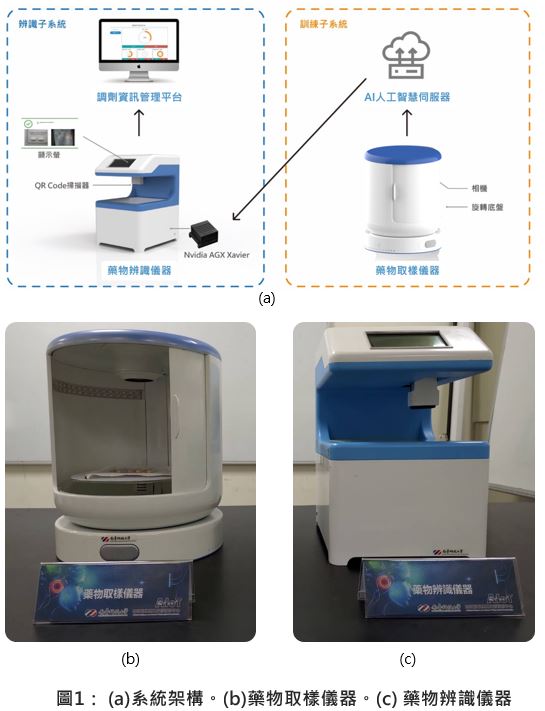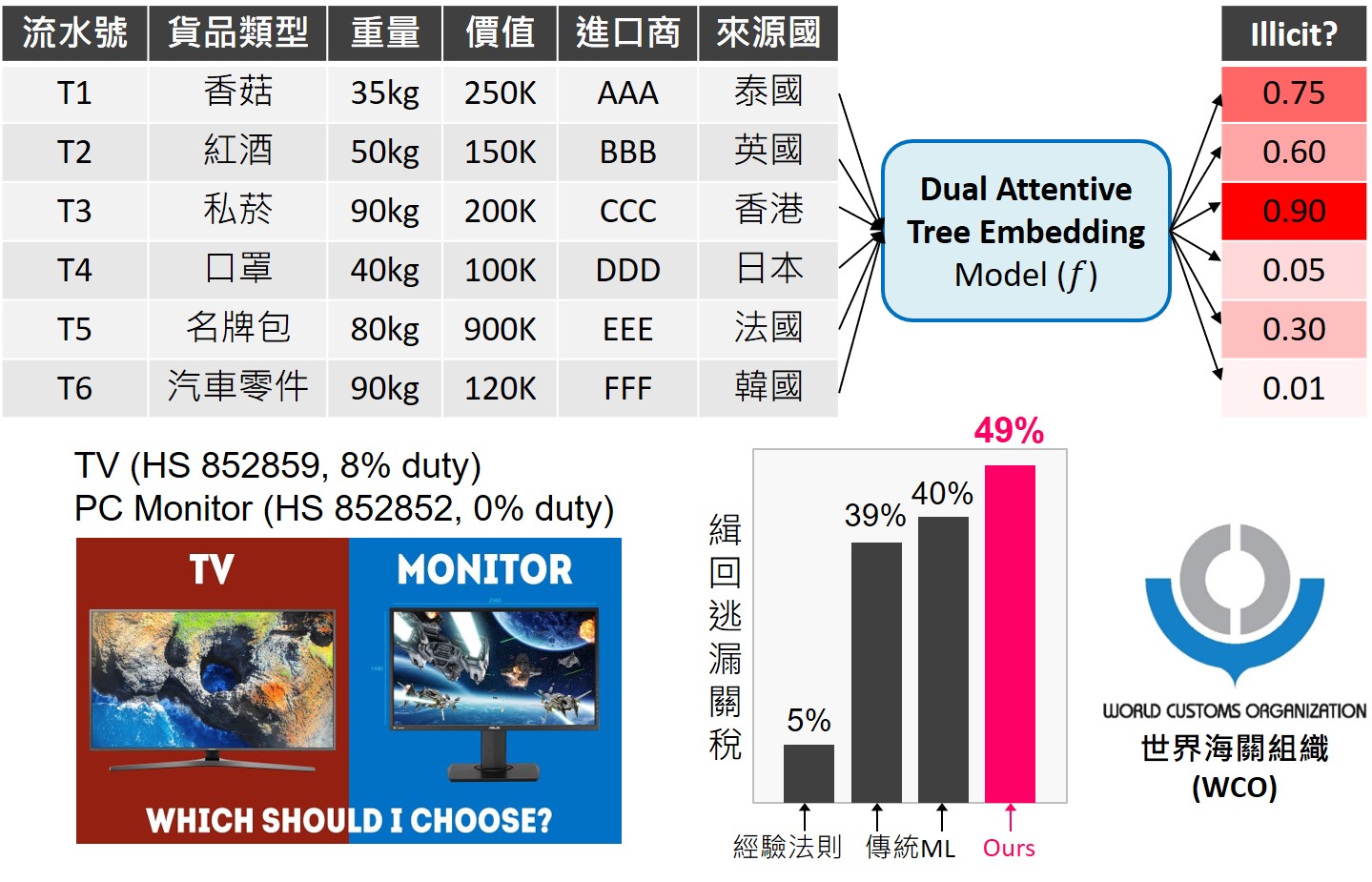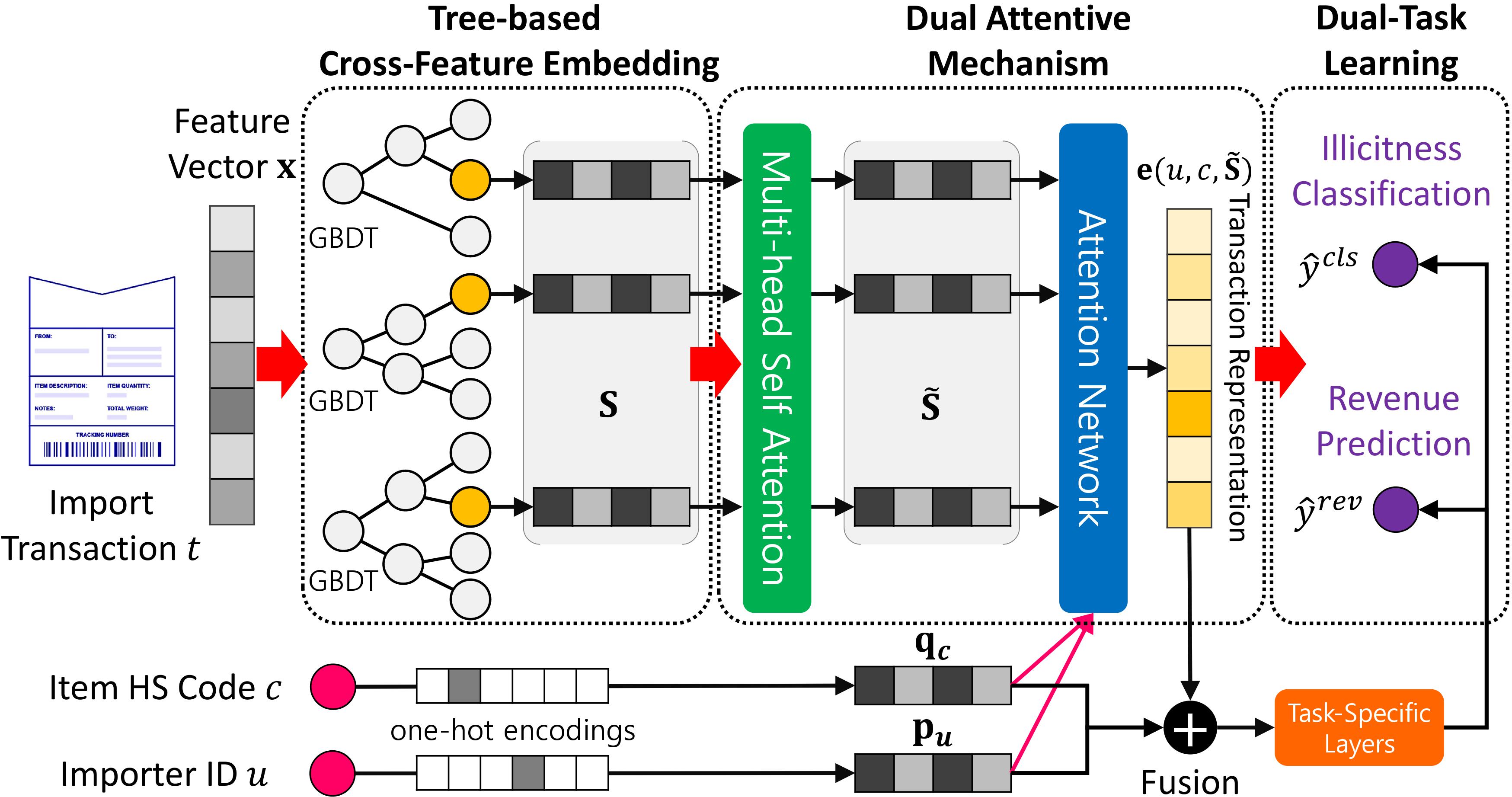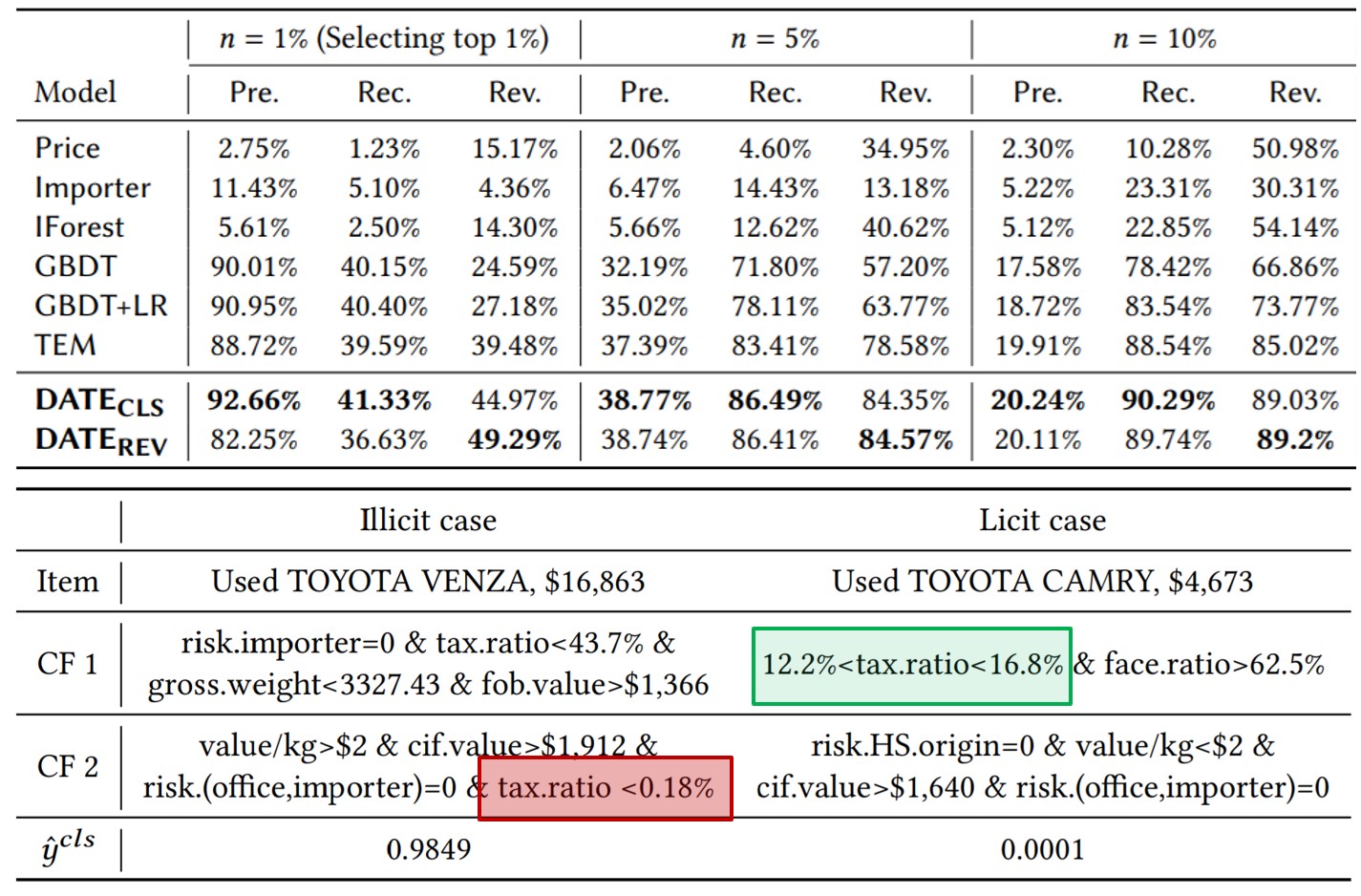| Technical Name | Artificial Intelligence for Customs Fraud Detection | ||
|---|---|---|---|
| Project Operator | National Cheng Kung University | ||
| Project Host | 李政德 | ||
| Summary | With the astronomically growing trade flows, customs administrations need effective and explainable methods to detect suspicious transactions. This project presents a novel artificial intelligence-based model named DATE that ranks trade flows in the order of fraud risk and to maximize customs revenue. We confirm the superiority of DATE over state-of-the-art AI models, with a remarkable precision of 92.7% on illegal cases and a recall of 49.3% on revenue after inspecting only 1% of all trade flows. Predictions of DATE are also interpretable from the attention mechanism. We are deploying DATE in Nigeria and Malawi Customs Services, in collaboration with the World Customs Organization (WCO). DATE has been published in ACM KDD 2020, which is an AI top conference. |
||
| Scientific Breakthrough | The breakthrough and novelty of our customs fraud detection AI DATE includes: (1) a tree-based component to learn cross features, (2) a dual attention mechanism to learn the correlation among cross features, importers, and transactions, (3) a dual-task learning objective to jointly optimize illicit detection and maximize the revenue prediction, and (4) being capable of model interpretability for explaining why a trade flow is detected as illicit. The evaluation conducted on Nigeria Customs' real data exhibits: (1) our DATE model shows a remarkable precision of 92.7% on illegal cases and a recall of 49.3% on revenue after inspecting only 1% of all trade flows. These are significantly better than state-of-the-art AI benchmarks (i.e., XGBoost and TEM). |
||
| Industrial Applicability | Our AI technique are deploying in customs systems of Nigeria and Malawi. We are promoting it to all WCO member countries. The main target of our AI is all countries' customs services in the world. We expect to bring three-fold economic impacts: (1) accurately detecting customs frauds to ensure legal economic behaviors of import and export trades, (2) bringing additional tax revenue and reducing the loss from tariff evasion for government agencies, and (3) being applicable to banking industries for detecting illegal financial trades and preventing money laundering due to the open source of our AI model. Moreover, our AI model is quite useful in the current COVID-19 period because the intelligent customs fraud detector can prevent inspectors from be exposed to the risky circumstance. |
||
| Keyword | Customs Fraud Detection Deep Learning Artificial Intelligence Illicit Transaction Detection Recommender Systems Machine Learning Homeland Security FinTech E-government Big Data | ||
- reliefli@gmail.com
other people also saw







